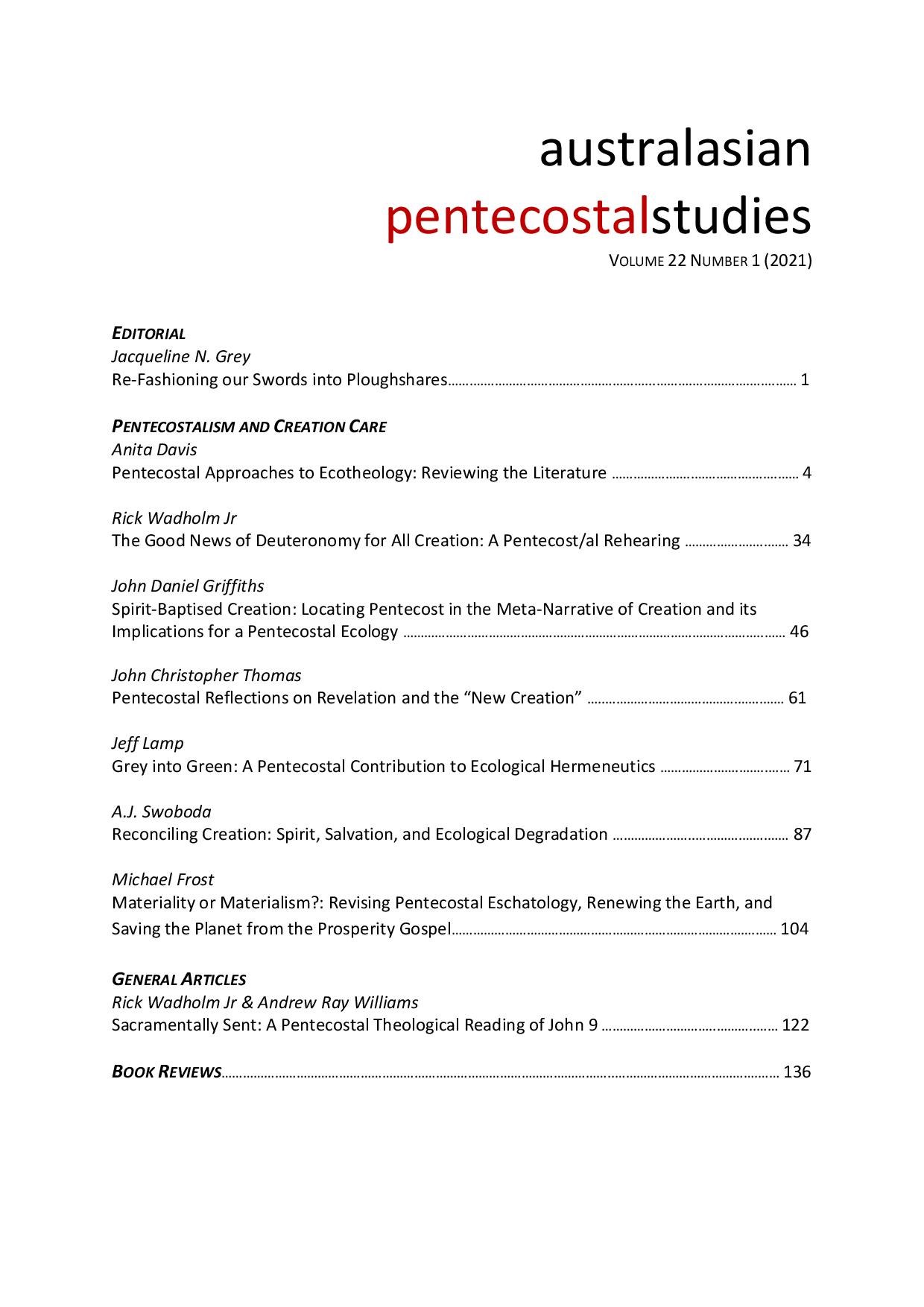Materiality or Materialism?: Revising Pentecostal Eschatology, Renewing the Earth, and Saving the Planet from the Prosperity Gospel
Abstract
The negative presumptions of premillennial eschatology have resulted in troubling attitudes toward climate change and other issues of environmental concern among pentecostals. Eschatologies that view the earth as destined for cosmic annihilation serve not just as a distraction from taking ecological action, but indeed further fuel the abuses that are leading to environmental crisis. Rather than continuing to embrace eschatologies that are an impediment to eco-theology, as well as being incongruent with many aspects of pentecostal spirituality, I argue for three inter-related features of a reformulated pentecostal eschatology. First, the work of the Spirit intersects with the materiality of our lives. If the coming kingdom of God is an embodied and holistic one, then the Spirit is interested in the full materiality of our existence, the implications of which suggest the inclusion of the ecosystem of which we are a part. Second, pentecostal renewal is both personal and cosmic. There are inseparable connections between the work of the Spirit in the transformed and renewing lives of believers, and the work of the Spirit in renewing creation. Third, the embracing of a pentecostally informed prophetic millenarianism should compel pentecostals to resist unbridled consumerism and its deleterious impact on creation. This is especially the case in relation to the prosperity gospel, with pentecostals instead called to live in anticipation of a coming kingdom that includes the holistic flourishing of all of creation.
Downloads
Published
How to Cite
Issue
Section
License
Authors who publish with this journal agree to the following terms:
- Authors retain copyright and grant the journal right of first publication with the work simultaneously licensed under a Creative Commons Attribution License that allows others to share the work with an acknowledgement of the work's authorship and initial publication in this journal
- Authors are able to enter into separate, additional contractual arrangements for the non-exclusive distribution of the journal's published version of the work (e.g., post it to an institutional repository or publish it in a book), with an acknowledgement of its initial publication in this journal.
- Authors are permitted and encouraged to post their work online (e.g., in institutional repositories or on their website) prior to and during the submission process, as it can lead to productive exchanges, as well as earlier and greater citation of published work (See The Effect of Open Access).


